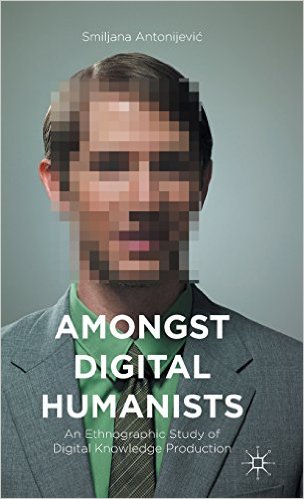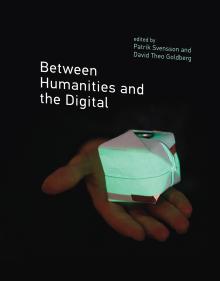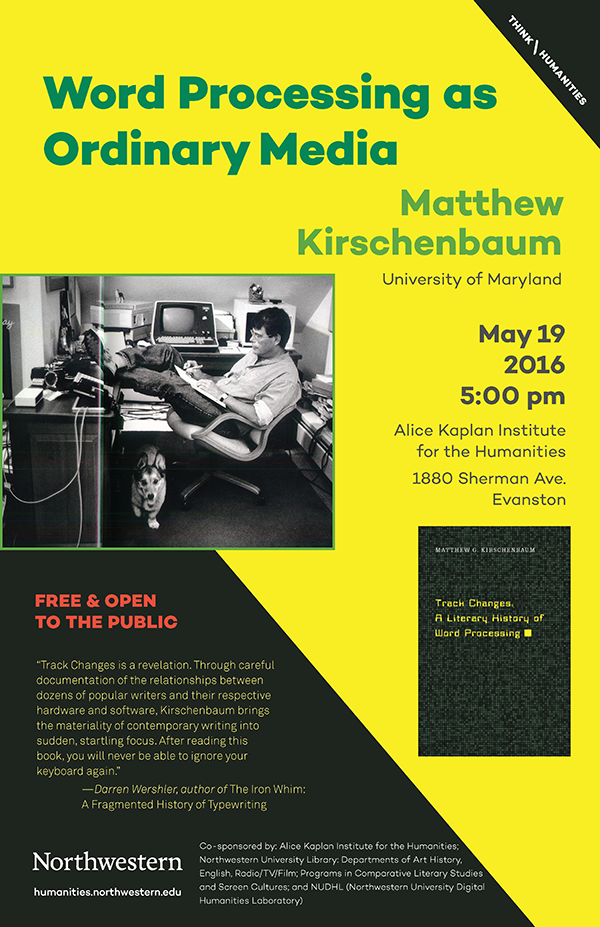Harmonizing Difference in the Digital Archive
Dr. Whitney Trettien
Department of English and Comparative Literature, University of North Carolina, Chapel Hill
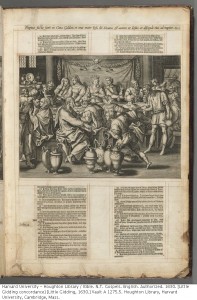
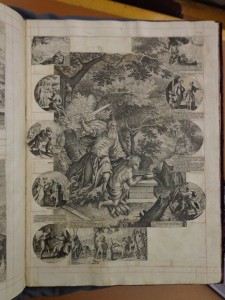
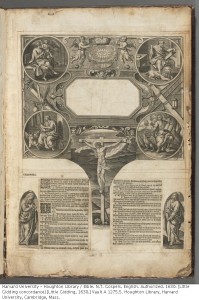
Friday, 29 April 2016, noon – 2 pm.
Alice Kaplan Institute for the Humanities, 1800 Sherman Avenue
Lunch provided. Please RSVP to NUDHL co-convener Michael Kramer, mjk@northwestern.edu.
All welcome regardless of digital humanities experience.
DESCRIPTION
In 1625, Nicholas Ferrar and his mother Mary left London to found the Anglican community of Little Gidding. There, in an early modern “makerspace” known as the Concordance Room, the women of the community hacked religious books: they chopped apart printed Bibles and engravings with scissors, then pasted these paper fragments back together into elaborate collages of text and image that remix, or “harmonize,” the four Gospels. Together, these thirteen cut-and-paste volumes—comprising perhaps the largest early modern archive of English women’s bookwork—are known as the Little Gidding Harmonies, and they are the subject of Trettien’s digital monograph, “Cut/Copy/Paste: Echoes of Little Gidding.”
Patriarchal assumptions and print-mediated research practices have long obscured the women of Little Gidding’s cross-disciplinary, transatlantic contributions to history. Cutting through these obfuscations, “Cut/Copy/Paste” reconstitutes the community’s scattered fragments through the creation of a digital Concordance Room. There, readers may “harmonize” high-resolution facsimiles of these rare books with a wealth of archival materials. In this talk, Trettien connects this project’s design to broader methodological interventions in the fields of book history, media archaeology, and digital humanities. As objects like the Harmonies underscore, books do not clearly represent the time of their creation but come to us accreted with precarious, uneven evidence of many moments and multiple hands. Attending to these discontinuities in digital spaces requires what Karen Barad, following Donna Haraway, has described as a diffractive approach. Rather than smoothing over striations of difference, diffractive digital design illuminates and constellates a diversity of moments, objects, and ideas—much as the women of Little Gidding do in their kaleidoscopic Harmonies.
For more, see “FAQs on the Little Gidding Harmonies.”
BIO
Whitney Trettien (http://whitneyannetrettien.com) is assistant professor in the Department of English and Comparative Literature at the University of North Carolina, Chapel Hill, where she teaches book history, digital humanities, and Renaissance literature. She is co-editor of Provoke! Digital Sound Studies (http://soundboxproject.com), a digital collection of sonic scholarship, and co-editor of thresholds (http://openthresholds.org), a new digital journal and platform for creative/critical scholarship.
